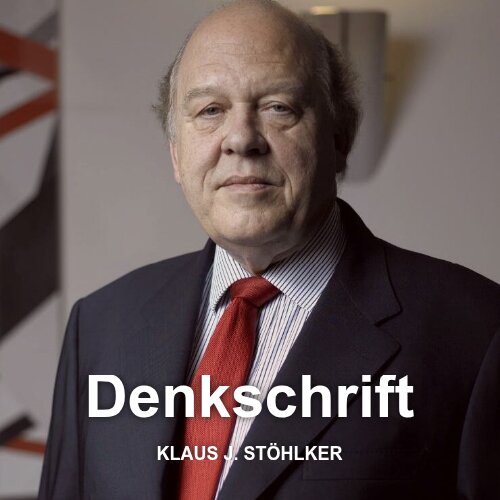The world’s leading international wealth management centre is still Switzerland, with USD 6.6 trillion assets under management at the end of 2014 (Source: Deloitte 2015). It is a well known fact that the Swiss Bank Secrecy does no longer exist in 2017. Swiss Banks therefore can no longer promote their old leading edge, Secrecy.
[simple-google-ads-ad-tag id=“ip_content_banner“]
On the 27th of May 2015, Switzerland signed an agreement with the EU that will align Swiss bank practices with those of EU countries, and in effect will end the special secrecy that EU-resident clients of Swiss banks had enjoyed in the past. Under the agreement, both Switzerland and EU countries will automatically exchange information on the financial accounts of each other’s residents from 2018.
Consequently Swiss Banks can no longer enjoy fat margins on assets under management. There is a serious structural problem that most Swiss Private Banks are facing today. Average Fee revenues from AUM has shrunk to an aggressive 0.8%. Only twenty years back the same margin was centered around 3%.
In 2015, banks represented 53.3% of the total value added of the Swiss financial sector, totalling CHF 32 billion representing 5.12% of the country’s GDP. UBS and Credit Suisse, the two largest banks in Switzerland, were ranked globally at #27 and #29 among banks, with assets of approximately US$941 billion and US$909 billion, respectively. (Source Wikipedia)
Swiss Private Banking is in trouble as there will be no return to the old regime of bank secrecy. There are at least a dozen of well entrenched Swiss Private Banks with considerable AUM (Assets under Management). Those medium to large Private Banks can only survive if they redefine their business model (Difficult with dwindling fee revenues from AUM) or „dress up“ to be attractive to be bought up by the giants such as UBS or others from abroad.
These giants need to constantly grow their AUM as they are in the volume business. Only they will be able to survive. All others such as Pictet, Bank Julius Baer, Lombard Odier, Rahn & Bodmer and the likes are in for a difficult adjustment period. It is those banks that need a frank talk that might show them a suitable exit to secure their future existence even if this means to be integrated into a much larger player, another banking giant like UBS et al securing AUM growth instantaneously.
There is a bank consolidation on its way that will define how well Switzerland can maintain to be the global wealth manager of a top 3 ranking. It is the right timing for offering strategic advisory services to the second and third tier Swiss Private Banks. They all are now in 2017 subject to a sunset industry. Swift strategic action is of urgent need.


1% fees from USD 6.6 trillion assets means USD 66 billion revenues.
What happens when markets fall?
Revenues will decline, industry will fail.
Banaler Artikel.
Useless comment.
There are not only the figures which matter! You forget a considerable advantage (and for the moment incomparable): Switzerland remains Switzerland with her democracy, the real only one existing in the world!
And this does count enormously !
The only problem is the declining revenue trend…..regardless of Switzerland or Singapore for that matter.
My dear Pascal Najadi
Swiss banks, providing a first-class service with sustainable performance and producing innovative and transparent financial products including above average portfolio management skills have – also as a result of the stable framework conditions – a great future. It is a sun-RISE-industry.
Ont he other hand:
Banks or financial companies, which ONLY rely on banking secrecy without any input of brains and innovation skills and whose business models only help to hide money for tax purposes have no great future. They are a dying and self-inflicted sun SET industry.
This is not a post or alternative fact but a real fact – worldwide.
I hope – my dear Pascal Najadi – you will understand this one day.
Innovation? What innovation? More zombie structured products and or mor boring expensive fund of funds? Seriously? Problem is a systemic one.
Nun, die innovativen Produkte für Superreiche sind schon innovativ. Diese sind den normalen Bankangestellten gar nicht bekannt. Aber wie man hört, ist die Schweiz da nicht mehr führend.
Was jetzt global diskutiert wird ist eine neue Währung. Da müssen die Schweizer Banken den Zug erwischen. Ansonsten ist die Situation relativ einfach. Die Mehrheit hat kein Geld zum Anlegen. Die Mittelstand nimmt ab. Und diejenigen welche Reich werden handeln sich eine für die Bank kleine Marge aus. Sprich, neben den – für Europa – wenig verbliebenen „Sondermodellen“ bleibt nicht viel Substanz übrig. Man vergleiche mal die Gewinne mit Übersee…..
Übrigens, das mit dem post- und alternativ blah blah können sie und all die Schäfchen lassen. Es ist schlicht ein Ausdruck der massiven Programmierung. Man muss nicht jeden Blödsinn nachplappern.
Grüezi Sunrise,
Sehen Sie, es geht bei der Geschichte nicht um Schafskäse oder nicht, sondern, ob dieses Geschäftsmodell der „Abschöpfung“ weiterhin praktikabel ist. Der Witz an der ganzen Sache ist ja: dass sich die Akteuere, trotzt Fakten, in diesem Narren-Spiel unentwegt „im Recht“ fühlen. Und es ist auch nicht erstaunlich, dass sich diese Herren im Recht fühlen, da die obersten Finanzbehörden und Politiker nicht wissen, wie sie im Falle einer Überschuldung umgehen sollen – im Zweifelsfall wird dann halt eben „gerettet“ und „gekürzt“ auf Kosten der Steuerzahler und der Versicherten. Soviel, zum „first-class service“
Herzliche Grüsse
Grüezi Herr Pascal Najadi,
zuerst möchte ich meine Solidarität und meine tief empfundene Anteilnahme aussprechen, für das Leid das Ihnen und Ihre Familie zugefügt wurde.
Als Zeitzeuge kann ich die dramatischen Konsequenzen der Verlagerung des Gewinnstrebens von der Realwirtschaft in die Finanzwirtschaft in der Schweiz bestätigen. Jetzt können wir erahnen was diese „Industry“ uns bescheren wird. Eine schleichenden Erosion der Realwirtschaft und Gesellschaft. Sie produziert systemische Arbeitslosigkeit, spaltet die Gesellschaft in reich und arm. Sie zerstört die solidarischen Grundlagen des Gemeinwesens. Es ist eine Branche die Milliarden mit Wetten verdeint, die als Finanzinvestitionen getarnt werden. Die einzige Möglichkeit besteht darin, diesen „Spielcasino“ trockenzulegen. Stichwort 2. Säule. Das Anlagevermögen der gesamten zweiten Säule beläuft sich auf 889 Milliarden Franken. Die Bewirtschaftung dieser Gelder ist ein grosses Geschäft für die Finanzindustrie. Bei der AHV gibt es nichts zu holen! Es ist ein Sumpf der kaum thematisiert wird. Den Pensionskassen ist es möglich, über extrem tiefe Umwandlungssätze im überobligatorischen Teil de fakto den gesamten Umwandlungssatz zu senken. Eine Aufhebung der Trennung zwischen obligatorischem und überobligatorischem Teil scheint im Moment kaum durchsetzbar zu sein; da anzusetzen wäre deshalb ein erster Schritt. Ein zweiter Schritt „Trennbanksystem“. Dritter Schritt: Zersplitterung der Grossbanken und massive Erhöhung des EK der daraus entstandenen Unternehmen.
Diese und andere von der Öffentlichkeit und den politisch Verantwortlichen in Parlament und Regierung kaum wahrgenommene Verflechtung von Realwirtschaft mit spekulativer Finanzwirtschaft muss auf dem Tisch.
Herzliche Grüsse
Herzlichen Dank
„Only twenty years back the same margin was centered around 3%“. Woher nimmt er denn diese Phantasiezahlen; dass die Margen sinken, liegt für jeden auf der Hand. Wie man im Wealth-Management allerdings 3% brutto verdient haben soll, ist mir einfachem Gemüt ziemlich schleierhaft?
Grüezi@Supermario,
https://www2.deloitte.com/content/dam/Deloitte/lu/Documents/financial-services/lu-en-swiss-wealth-management-report-022015.pdf
Bitte auch LEesen und NAchdenken, nicht nur MEinen und NAchplappern!
Herzliche Grüsse
@Arbeitgeber (KMU) …
Danke für den Hinweis; habe aber beim Durchlesen lediglich folgende Vergleichszahlen gefunden „The Revenue margin has fallen from 104bps in 2008 to an estimated Level of 90bps in 2014.“. Wie das weitere 10 Jahre zuvor bei 300bps gelegen haben soll, bleibt mir einfachem Gemüt zumindest gefühlsmässig schleierhaft. Zudem bin ich nicht ganz sicher, ob Deloitte in Bezug auf CH-Banken wirklich ganz unvoreingenommen ist. Aber dass das Geschäft in der Vermögensverwaltung zunehmend schwieriger wird, streite ich natürlich keineswegs ab; nur sollte nicht jedes Katastrophenszenario für bare Münze genommen werden.
Excellent article although the figures are a little outdated (2014) I’m sure that with newer figures (December 2016) the article will have more resonance since assets under management have dwindled (see UBS latest figures as a text book). I do believe Switzerland as a jurisdiction is and still will be attractive (specially for some of the qualities that people mention here like democracy, tradition, etc) but the biggest problem to the WM industry in Switzerland is that the same people that grew up with the Banking Secrecy model are the ones trying to get it out of that. Clearly it is not working as you can see by the wave of cuts and tightening (see Mirabaud, UBS, CS and the list could go on). The top management is lip servicing the public at large talking about changes and new operating models but in the end they are caught up in the NNM conversation. Add to the mix the Fintech, FO and clearly we are talking about a mine field.
I see a painful and bloody consolidation with „old timers“ retiring and big change coming in.
Otherwise, the sun will certainly set and that will not be good for Switzerland as a whole.
Grüezi@Supermario,
da rennen Sie bei mir offene Türen ein. Sie müssen schon selber nachdenken und sich kritisch einige Fragen stellen:
1. Wieso erfasst man die Zahlen „nur“ bis 2008?
2. Wie sind diese Zahlen zustandegekommen?
3.Was war davor? Gibt es verlässliche Zahlen (ein knappes Gut)?
Sehen Sie, kleinere Banken konnten (noch) vor 2008 aufgrund geringerer Komplexitätskosten ihren Vertrieb besser disziplinieren und folglich bessere Margen realisieren. Das ist schon lange vorbei! Wenn Sie weiterdenken und recherchieren, kommen Sie zum Schluss, dass die Totalmarge (Aktiv- und Passivmarge), sowie der Transformationsbeitrag einen konstanten Rückgang seit nahezu 10 Jahren aufzeigt.
Dieser hervorragender Artikel zeigt unmissverständlich auf, dass in den letzten 10-15 Jahren die Bankiers zu Bankern mutierten, so kann man vermuten, dass es mit dem Aufkommen der Technik der Verbriefung mit der früher gepflegten Nachhaltigkeit der Geschäftsbeziehungen zu Ende gegangen ist. Die Schweiz ist ein konservatives Land. Das hat Vorteile und Nachteile. Einer der nicht zu unterschätzenden Nachteile in einer „Globalisierter Welt“ ist die Gefahr „Auszusterben“!
Herzliche Grüsse
El panorama es bien distinto hoy, afortunadamente.